Search results for 1980s
People
Not Found
Tweets including 1980s

0
0
10
173
27
C++ Language
Developed by: Bjarne Stroustrup in the 1980s, as an extension of C.
Type: Multi-paradigm — supports both procedural and object-oriented programming. https://t.co/7RIfccaP2x
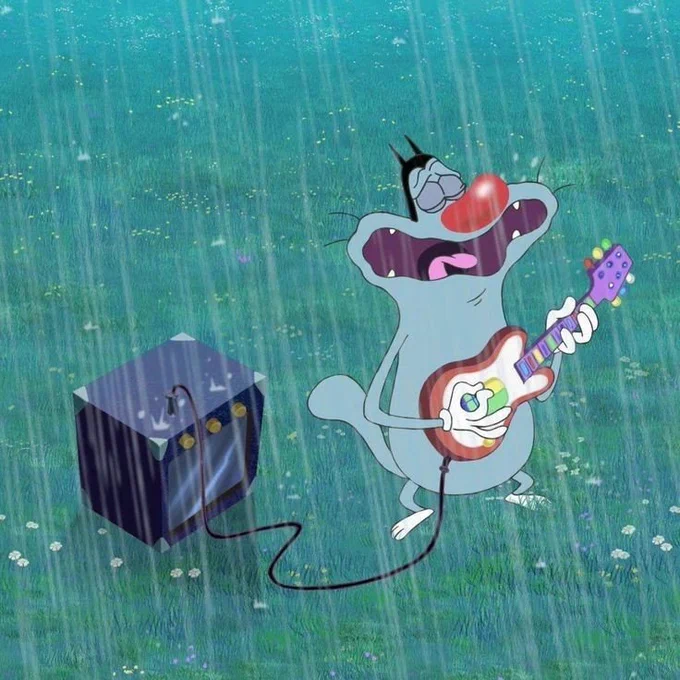
0
0
300
140
2
WWE is saddened to learn WWE Hall of Famer Hulk Hogan has passed away.
One of pop culture’s most recognizable figures, Hogan helped WWE achieve global recognition in the 1980s.
WWE extends its condolences to Hogan’s family, friends, and fans.
Show more
0
0
6.3K
186.1K
29.8K
Science never takes a break at Scott Base – not even on Christmas Eve. Ross, our elf near the shelf, has been taking measurements on the @niwa_nz Dobson spectrophotometer. It has been measuring the ozone layer directly above Arrival Heights since the 1980s!
#Elfontheshelf# https://t.co/wHWh84FUzQ
Show more
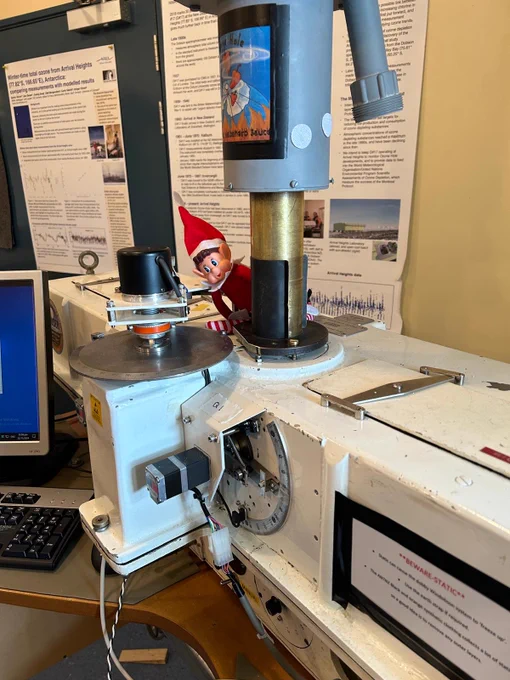
0
0
2
11
6
Over the past year, quite a few followers have suggested that I write something about Sanxingdui. I truly value every piece of feedback from friends here on X. That said, Sanxingdui research remains one of the most niche areas within Chinese archaeology, and I myself had not studied it in depth until recently.
Last year, I had the privilege of visiting the Sanxingdui site with @RnaudBertrand and his lovely family. Since then, I've been reading a large number of excavation reports, and I've also had the privilege of consulting several outstanding archaeologists who were directly involved in the excavations. As a fun coincidence, one of them even turned out to be a fellow Stanford alum-we were on campus at the same time, though our paths never crossed before.
In the coming months, I plan to share a series of posts introducing Sanxingdui, weaving together what I saw during that field visit, what I've learned through personal research, and insights from conversations with leading experts in this field. I'll do my best to present Sanxingdui in a way that is in-depth, engaging, and accurate.
Let me begin with a brief overview. In Chinese, Sanxingdui means "three star-shaped mounds (三星堆)." The site is located just north of Chengdu and is about an hour's drive from the city center. In 1929, a local farmer discovered a cache of jade artifacts in front of his courtyard and the news soon reached to local foreigners. Surprisingly, this didn't lead to plunder or looting, which was so often in that chaotic age. Instead, they ended up financially supporting a joint excavation with Chinese archaeologists.
In the decades that followed, more jade, stone, and pottery artifacts were unearthed. But without a chance discovery in 1986-when workers at a local brick kiln were digging for soil-Sanxingdui might never have captured the attention of China or the world.
That discovery revealed exquisite bronzeware, including two large pits believed to be sacrificial. Inside were a wealth of stunning bronze, jade, and even gold artifacts. These finds catapulted Sanxingdui to prominence as one of China's most mysterious and astonishing archaeological sites. The uniquely shaped bronze masks, human figures, and sacred trees-imbued with strong religious and shamanistic symbolism-suggest an advanced and enigmatic ancient civilization.
Who were these ancient people? What did they believe in? Why did they suddenly disappear? How did they relate to the Central Plains civilizations? These are some of the questions I'll explore in this Sanxingdui series.
Let me start by introducing the first artifact: a towering bronze figure discovered in the 1980s. To date, it's the tallest early-period bronze human figure ever found in China, standing 262 cm tall and weighing around 180 kilograms. When first excavated from the sacrificial pit, it was broken into two pieces, with some areas deformed-likely intentionally damaged before it was buried in the pit.
The bronze figure stands 172 cm tall, with a 10 cm crown, bringing the total height to 182 cm. His facial features are sharp and angular, with prominent eyes and circular holes in each earlobe. He wears three layers of thin robes-the innermost layer reaches past the calves and splits at the back-with intricate patterns etched onto the fabric.
His hands form circular grips, as if once holding something. Scholars have variously speculated that it might have been ivory, a ritual staff, or even a dragon or serpent. Because of his imposing stature and elaborate garments, many believe he represents either the highest deity of the Sanxingdui people, a king, or a chief priest. Curiously, however, he is barefoot, wearing anklets-creating a striking contrast between his ornate attire and his unshod feet.
This large standing figure wears a crown shaped like a blooming flower, with leaf-like extensions on either side.
On the front lower part of his robe, there appears to be the face of a cicada or a bird. In ancient times, cicadas were associated with regeneration due to their molting, while birds, capable of flight, symbolized a dream of transcendence shared by many early human cultures.
Looking at his back, you can see two holes in the head area, likely used to affix decorative hairpins. At the top of his back is a dragon, and further down are two coiled dragons with clawed feet shaped like bells. Yes-you could say he's wearing a dragon robe. On the right side of the figure, there's still debate about one particular feature-some scholars think it might be a thumb.
He stands on a beautifully decorated base, adorned with interlinked dragon heads.
He has stood there, silent for three thousand years, as if still watching something.
Perhaps one day, we will understand what he was trying to tell us.
Until then, I'll do my best to tell his story.
Show more


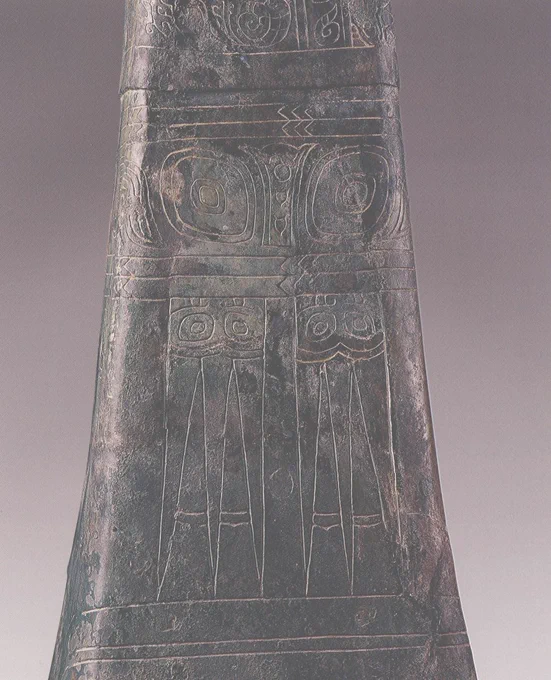

0
0
2
18
7
A 1920s electric toaster that still works
📹 The_ronald_eugene
https://t.co/ZALjKaFCvv

0
0
32
452
70
A 1970s BBC clip predicting the kitchen of the future
https://t.co/Dz9Fsf1Oi7

0
0
21
57
8
Since 1990s, Armenia has consistently resorted to brutality and violence which led hundreds of innocent civilians lose their lives. Armenian troops keep ignoring the ceasefire agre. Karabakh is Azerbaijan!🇦🇿🇦🇿🇦🇿
#StopArmenianAggression#
#KarabakhisAzerbaijan#
#stoparmenianterror#
Show more
0
0
0
7
1
Safety standards in the 1960s- 70s
Chair lifts in the Snow King Mountains, Wyoming https://t.co/swbjH9ubO8

0
0
70
466
53
Life was different in 1960s England
This is Scarborough
https://t.co/FGooSBe9wh
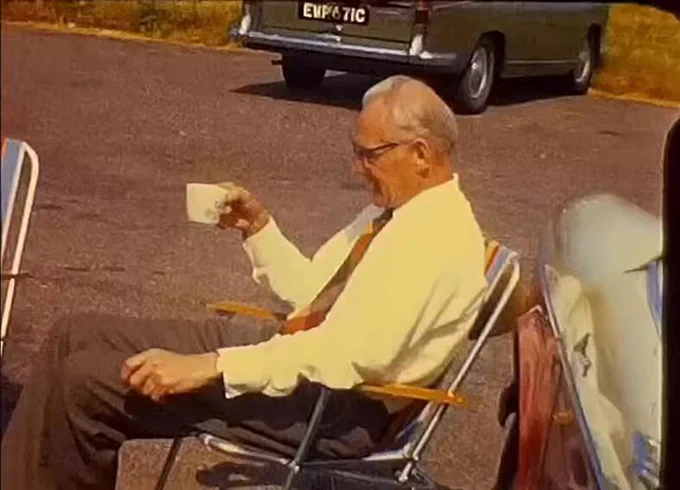
0
0
22
66
8
Handbag styles in the 1950s
https://t.co/EiEG0U1UPq

0
0
22
107
18
England in the 1900s
https://t.co/oMLziNbGLD
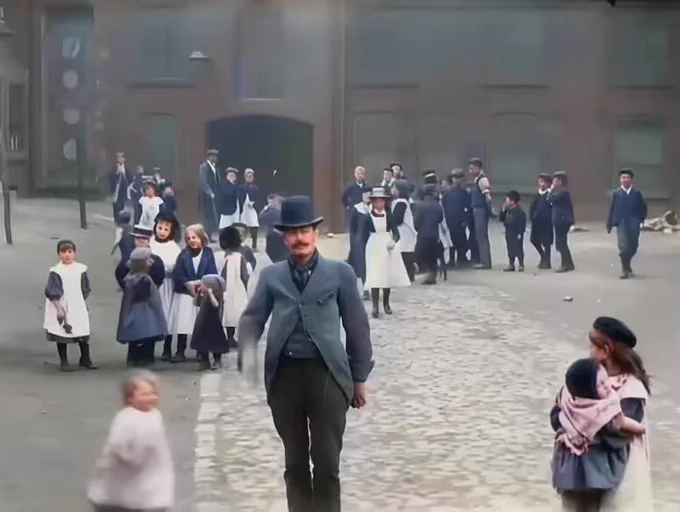
0
0
58
538
96
A log Cutter from 1920s, still working 👏🏻😯 https://t.co/1Arn78WQY7

0
0
4
69
12
In the early 1900s, telephone lines created a tangled web of connections, showcasing the complexity of communication at the time.
For more content like this, please visit: https://t.co/okFDydylYy
📸 Wikimedia Commons https://t.co/8irqEhHmKX
Show more

0
0
0
0
0
In the 1880s, horse diving began, inspired by William "Doc" Carver, after his horse jumped off a bridge into a river. A brief attempt was made in 2012 to revive it. https://t.co/wSvQf6XczV

0
0
187
4.4K
260
On this day in 1980, a vision took shape — a vision of a strong, self-reliant, and united India. Let's together celebrate the BJP Foundation Day at party office Kamlam honoring decades of dedication, service, and commitment to the nation.
#BJP4India# https://t.co/BP2HubyEvH
Show more
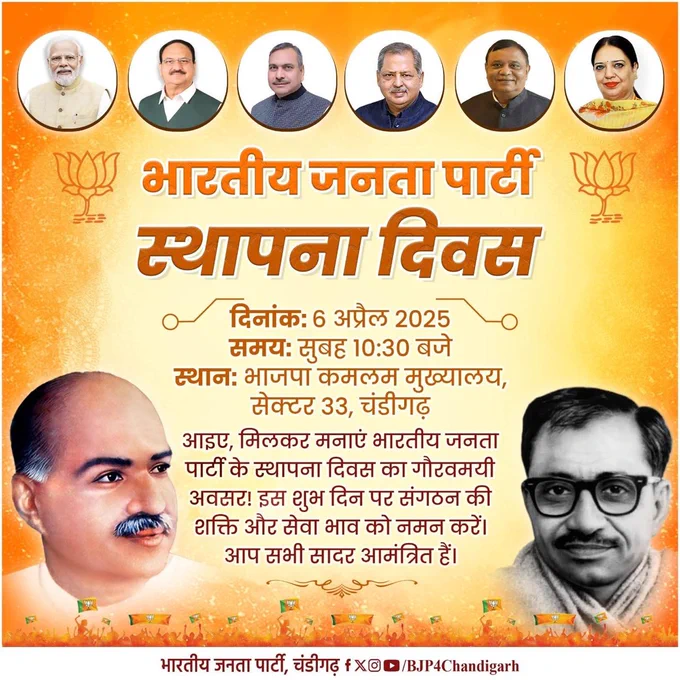
0
0
1
10
4
每个时代都有机会
1980-1990年代
有下海经商机会
2000-2020年代
互联网移动互联网机会
中国房地产机会
2010-今
加密货币机会
ai机会
总有人没赚到,就说自己时代不好,好机会都被前人占了。
有没有可能,就像回看历史k线一样,
看别人的时代赚钱都简单,
到自己的时代就不会玩了。
Show more
0
0
6
25
2
I just won a giveaway for @oi_1990s from @thegumboworld on @AlphabotApp!
🎉 LFG #Alphabot# 🎉
https://t.co/ts44h4XpRO
0
0
0
0
0
This place captured the quintessential elements of optimistic futurism from the 1950s.
The spirit is a stand against the pessimistic brutalist ethos that had taken hold of our culture.
This is a success on many levels.
Thank you @Tesla and @elonmusk.
https://t.co/daADGdVysy
Show more

0
0
48
453
57
Fully restoring a vintage lodge skillet from the 1930s https://t.co/Ph8GsOzLcC

0
0
25
432
36














